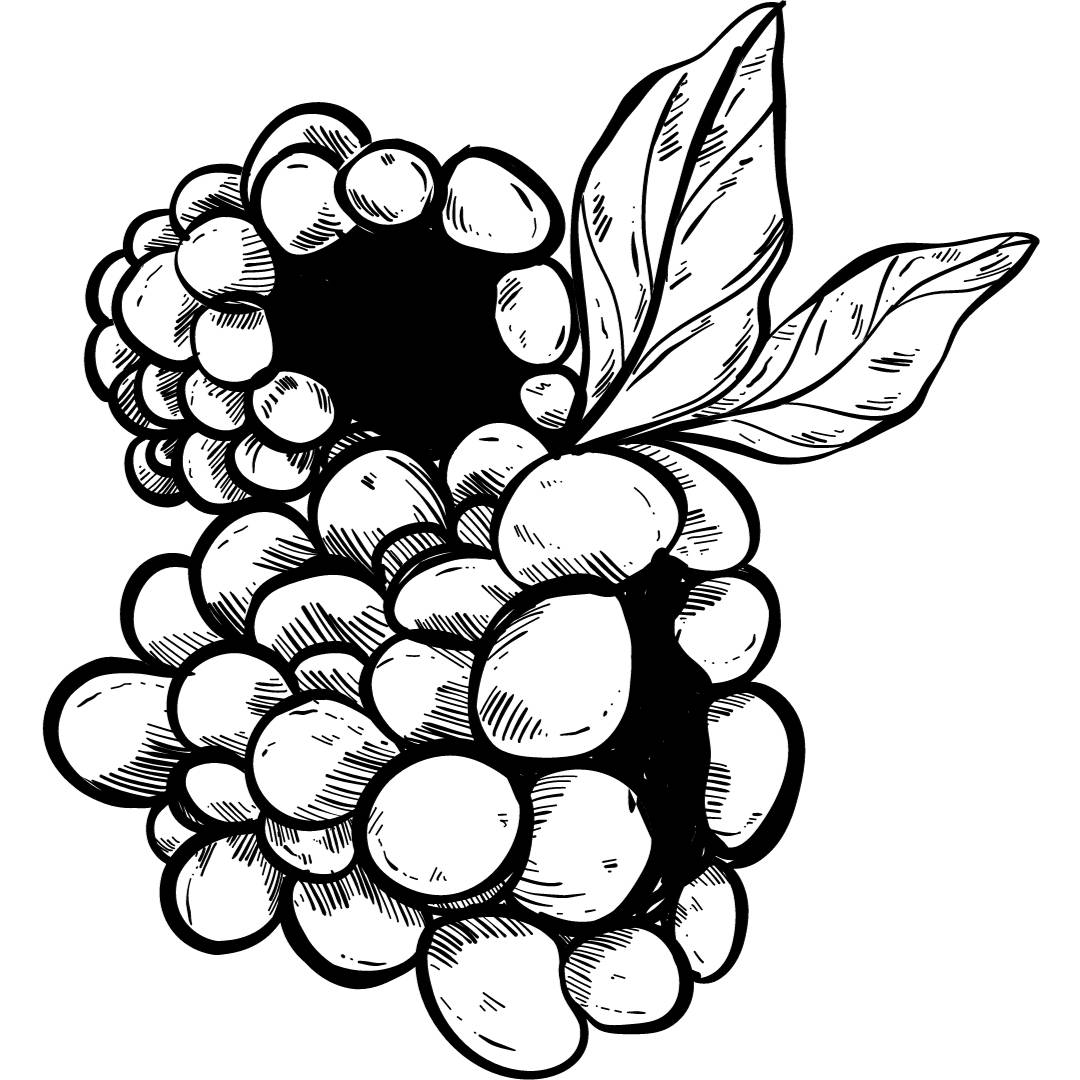
RED RASPBERRY
Rubus idaeus
Raspberry refers to both the fruit produced by the Rubus idaeus plant and the plant itself. The raspberry plant is a member of the Rosaceae family and is widely cultivated for its sweet, juicy berries. There are various species and cultivars of raspberries, with red raspberries (Rubus idaeus) being the most common, but there are also black, purple, and yellow varieties.
Fruit Appearance:
Raspberries are small, red, or black aggregates of drupelets, each containing a seed. They have a sweet and slightly tart flavor.
Plant Type:
The raspberry plant is a deciduous shrub that produces canes with thorns. It is known for its vigorous growth and can be cultivated in gardens or on commercial farms.
Varieties:
There are several varieties of raspberries, including red raspberries, black raspberries (Rubus occidentalis), purple raspberries (a hybrid of red and black varieties), and yellow raspberries.
Cultivation:
Raspberries are typically grown in temperate regions and thrive in well-drained soil with ample sunlight. They are commonly cultivated for both fresh consumption and commercial processing (e.g., jams, jellies, and desserts).
Nutritional Content:
Raspberries are rich in vitamins (such as vitamin C and manganese), dietary fiber, and antioxidants. They contribute to a healthy diet and are often considered a nutritious snack.
Health Benefits:
Raspberries are associated with various health benefits, including:
Antioxidant Properties: Raspberries contain antioxidants like quercetin and ellagic acid, which help combat oxidative stress.
Dietary Fiber: The fiber content in raspberries supports digestive health and helps regulate blood sugar levels.
Vitamins and Minerals: Raspberries provide essential vitamins and minerals that contribute to overall well-being.
Raspberries offer several skincare benefits when incorporated into skincare products or used topically. These benefits are attributed to the fruit's rich nutritional profile, which includes vitamins, antioxidants, and other bioactive compounds.
Antioxidant Protection:
Raspberries are rich in antioxidants, including quercetin, ellagic acid, and vitamin C. Antioxidants help neutralize free radicals, protecting the skin from oxidative stress and environmental damage.
Anti-Aging Properties:
The antioxidants in raspberries contribute to their potential anti-aging effects. They may help reduce the appearance of fine lines and wrinkles, promoting a more youthful complexion.
Brightening Effect:
Vitamin C in raspberries is known for its skin-brightening properties. It can help even out skin tone and reduce the appearance of dark spots and hyperpigmentation.
Hydration and Moisture:
Raspberries contain water and natural sugars, contributing to their hydrating properties. When applied topically, raspberry extracts or oils can help maintain skin moisture and prevent dehydration.
Soothing and Calming:
The anti-inflammatory properties of raspberries may help soothe and calm irritated or inflamed skin. This can be beneficial for individuals with sensitive or reactive skin.
Skin Repair and Regeneration:
Ellagic acid, found in raspberries, has been associated with promoting skin repair and regeneration. It may contribute to the healing process, aiding in the recovery of damaged or stressed skin.
Exfoliation and Renewal:
Raspberries contain natural acids, such as alpha-hydroxy acids (AHAs), that can contribute to gentle exfoliation. This helps remove dead skin cells, promoting a smoother and more radiant complexion.
Reduced Redness:
The anti-inflammatory and calming properties of raspberries may help reduce redness associated with conditions like rosacea or general skin sensitivity.
Acne Control:
The antibacterial properties of raspberries may be beneficial for individuals dealing with acne. These properties, along with antioxidants, can contribute to clearer and healthier-looking skin.
UV Protection:
While not a replacement for sunscreen, the antioxidants in raspberries may provide some level of protection against UV damage. Incorporating raspberry extracts into skincare formulations may contribute to overall skin defense.
Nourishment for the Skin:
Raspberries contain vitamins, minerals, and essential fatty acids that nourish the skin. These nutrients contribute to overall skin health and vitality.
Firming and Toning:
The astringent properties of raspberries may contribute to skin firming and toning. Regular use may help improve the elasticity of the skin.

